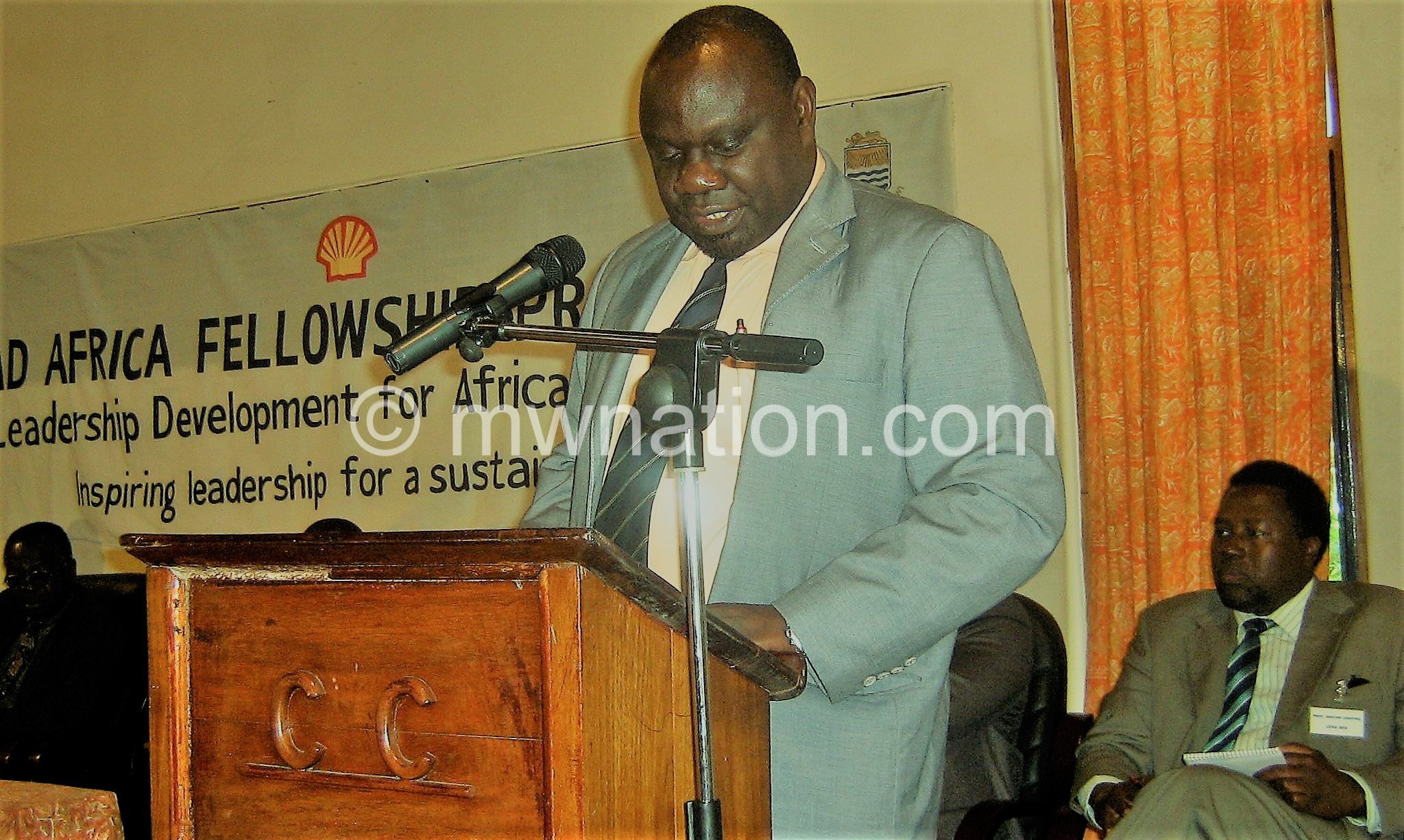DfID funds k236bn cashgate probe
The Department for International Development (DfID) has provided the National Audit Office (NAO) with K500 million to conclude a forensic audit in the K236 billion Cashgate audit, Treasury has confirmed.
Auditor General Stephenson Kamphasa told Parliament’s Public Accounts Committee (PAC) last Friday that the audit which stalled due to lack of financial resources is now in progress after DfID provided funds.

Kamphasa said the audit is expected to be concluded in November this year.
Treasury Secretary Ben Botolo whose institution signed the contract with DfID confirmed the funding for the audit.
In May 2015 a financial analysis report by audit and business advisory firm PricewaterhouseCoopers (PwC) established that K577 billion in public funds could not be reconciled between 2009 and December 2014.
This was followed by a forensic audit by British firm RSM Risk Assurance Services LPP which reported that out of the K577 billion, it was K236 billion that remained to be accounted for.

But in July 2016, the Attorney General advised the National Audit Office (NAO) that publishing names of individuals and companies in the audit report could have legal implications and derail investigations.
In September 2016, the Anti Corruption Bureau (ACB) said it reviewed 13 files detailing payments of K17.1 billion that were made to the companies by Malawi Police Service (MPS) and Malawi Defence Force (MDF) and intended to send a report to Auditor General for further action.
In March this year, ACB released five names it said it had cleared of wrong doing in the K236 billion Cashgate.
Parliamentary Accounts Committee (PAC) chairperson, Alex Menyani told Weekend Nation in March this year that the names of the cleared companies were: Malachite FZE, Rummage Pace, Top Prima Limited, Chicago Suppliers and Xelite Strip Ltd.
The ACB, however, did not release names of the firms still under probe—after PAC, ACB and Auditor General had agreed not to.
The bureau said it was waiting for the Auditor General to hand over 37 more files which would bring the total to 50.
In an e-mailed response yesterday, Menyani said the Auditor General had told his committee that he has engaged a forensic firm to work on the remaining 37 files alongside his auditors.
Said Menyani: “But our experience with that consultant is that they have not helped matters in the past beyond raising people’s expectations.
“The Auditor General is yet to furnish us with information in concluding the 13 case files which though had four companies cleared added another 37 case files.”
But Menyani said the Auditor General should not squarely get the blame for failing to expedite the audit leading to prosecution of suspected culprits because they rely on agencies such as the ACB.
Said Menyani: “ As PAC we sometimes feel we are in a state of capture as a nation in terms of procurement of public goods.”
The Auditor General could not pick his phone while the spokesperson for the National Audit Office is said to be out of the country.
The Director of Public Prosecutions (DPP) whose office authorises prosecution of suspects in alleged malfeasance has previously accused State investigators and prosecutors of playing tricks with evidence mostly to protect suspects.
In her report to the Legal Affairs Committee (LAC) of Parliament which our sister paper The Nation saw in December last year, DPP Mary Kachale explained that prosecutors conspire with investigators to engineer acquittals or discharges from court cases by purposefully excluding crucial evidence that undermines cases and the State’s push for a conviction.
She said in the report that those being protected mostly include civil servants who were office holders in the notorious lootings that happened between 2009 and 2014.
Menyani said the release of the names was a breakthrough in the matter but bemoaned the level of secrecy in procurement in government institutions.
The forensic audit of the financial years 2009-2014 was carried out in two phases; in the first phase, PricewaterhouseCoopers (PwC) on behalf of the NAO checked whether the statements from government bank accounts matched with entries in the Integrated Financial Management System (Ifmis).
The main aim of the investigation into these transactions was to understand the fraudulent system behind the mismanagement of public funding.
The analysis showed that 43 percent of payments reflected in the government bank statements were not accounted for in Ifmis.
The cover of security was used to siphon billions of public funds from State coffers as a majority of the transactions went through votes of the Malawi Defence Force (MDF) and Malawi Police Service (MPS), said the report.
The money was siphoned from government coffers through dubious procurement that were taking place in a number of government ministries and departments. Out of the 50 most frequent government suppliers the auditors concentrated on, the report revealed that Defence and Police had the dark holes.
The shooting of former Ministry of Finance budget director Paul Mphwiyo outside the gate of his Area 43 residence in Lilongwe on September 13 2013 led to revelations of the plunder of public resources at Capital Hill widely known as Cashgate.
Former president Joyce Banda ordered an audit which British forensic audit firm Baker Tilly undertook covering the period between April and September 2013.
The audit established that about K24 billion was siphoned from public coffers between April and September 2013 through dubious payments, inflated invoices and goods or services never rendered.





